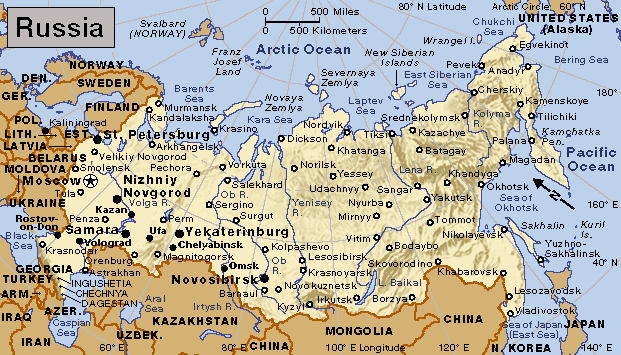Yekaterinburg << yuh KAT uhr ihn `burg` >> (pop. 1,588,665) is one of Russia’s largest cities and a leading industrial center. It is a transportation hub linking western Russia and Siberia. Yekaterinburg, also spelled Ekaterinburg, is a cultural and educational center of the Ural Mountains.

Yekaterinburg’s industries include metal processing, machine construction, and gem cutting. Factories in the area produce ball bearings, chemicals, pharmaceuticals, and rubber tires. Yekaterinburg is a major stop on the Trans-Siberian Railroad and a center for air travel.
The settlement grew up near an ironworks and a fort that were built in the early 1720’s. Peter the Great named the settlement Yekaterinburg in honor of his wife Catherine. It became the center of the mining and machine building industries in the Urals. Russian revolutionaries imprisoned Czar Nicholas II and his family in Yekaterinburg in 1917 and executed them there in 1918. During World War II (1939-1945), the city’s industries expanded as Russia moved factories there. The city’s name was Sverdlovsk from 1924 to 1991.
